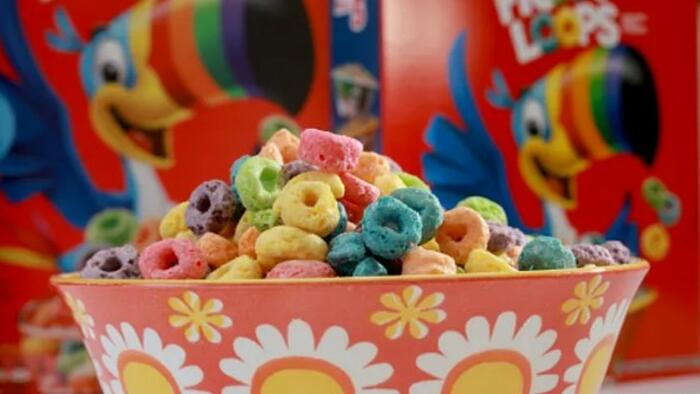The future for Kellogg, the well-known manufacturer of Froot Loops, has become increasingly complicated due to growing scrutiny over its use of artificial food dyes. These dyes, which are prevalent in many processed foods, have drawn criticism for potentially posing health risks, particularly for children. Incoming HHS Secretary Robert F. Kennedy Jr. has emerged as a prominent critic of such additives, arguing that the economic advantages of these cheaper, synthetic dyes come at the cost of public health. Kennedy’s campaign against processed foods and artificial coloring has gained momentum, particularly following the endorsement from President-elect Trump, amplifying calls for reform in food manufacturing and promoting greater awareness around chronic diseases linked to food choices.
Kellogg defends its position by asserting that the artificial colors used in its products are deemed safe by numerous scientific organizations globally. However, this stance has placed their flagship product at the heart of a contentious debate in U.S. food politics. The Wall Street Journal has articulated how Froot Loops has inadvertently become a focal point for discussions surrounding food safety, public health, and corporate responsibility. As Kennedy vocalizes his opposition and calls for stricter regulations against harmful chemicals in food, the dialogue surrounding the safety and ethics of artificial food dyes has escalated. Proponents of a ban argue that alternative natural coloring options are available, yet Kellogg and its industry peers highlight the persistence of consumer preference for the traditional appearance and taste of their products.
The conversation over artificial dyes is also influenced by international perspectives on food safety. In many countries, artificial colors are either banned or heavily regulated, prompting manufacturers like Kellogg to offer dye-free versions of their products in those markets. This stark contrast raises questions about the company’s responsibility to its U.S. consumer base. Critics point out the hypocrisy in providing safer options overseas while continuing to market the dyed versions domestically, leading to accusations of prioritizing profit over consumer health. The debates surrounding this issue have intensified with California’s recent legislative efforts to ban specific food additives, including artificial dyes, which has effectively put added pressure on food manufacturers to adapt to changing regulations and consumer demands.
Activists and consumer advocates, such as Vani Hari and Jason Karp, have taken a stand against Kellogg’s continued use of artificial dyes, organizing protests and delivering petitions to the company. Their actions reflect a broader movement encouraging transparency and responsibility within the food industry, pushing for changes that align with consumer health over corporate profit. While Kellogg asserts that its dyes meet established safety standards, activists claim that these standards fall short of what is acceptable and necessary for protecting public health, particularly among vulnerable populations such as children who are regular consumers of brightly colored cereals.
Despite the momentum behind calls to eliminate artificial dyes, the response from the food industry has been mixed. Companies like Mars and General Mills have toyed with the idea of phasing out these additives but have often reversed their decisions due to consumer backlash regarding taste and visual appeal. As regulatory landscapes evolve, especially in states like California pushing for stricter guidelines, food manufacturers face an uphill battle. They must weigh the importance of adhering to consumer preferences against the growing push for healthier and safer food options, putting them in a precarious position regarding potential reforms.
The looming influence of Kennedy and the shifting legislative frameworks compel food manufacturers to reconsider their positions on artificial dyes. As advocacy for children’s health intensifies, the urgency for companies like Kellogg to address these concerns grows. Critics like Kennedy have not hesitated to emphasize the harmful implications of these dyes, labeling them as detrimental to children’s health even while companies tout their safety. As the situation stands, Kellogg and its counterparts must navigate a confluence of consumer demand, regulatory pressures, and public health implications, all of which are shaping the future of food manufacturing in the United States. The question remains: will these companies ultimately choose to adapt, or will they continue resisting changes that could align their practices with the growing call for safer, healthier food options?

